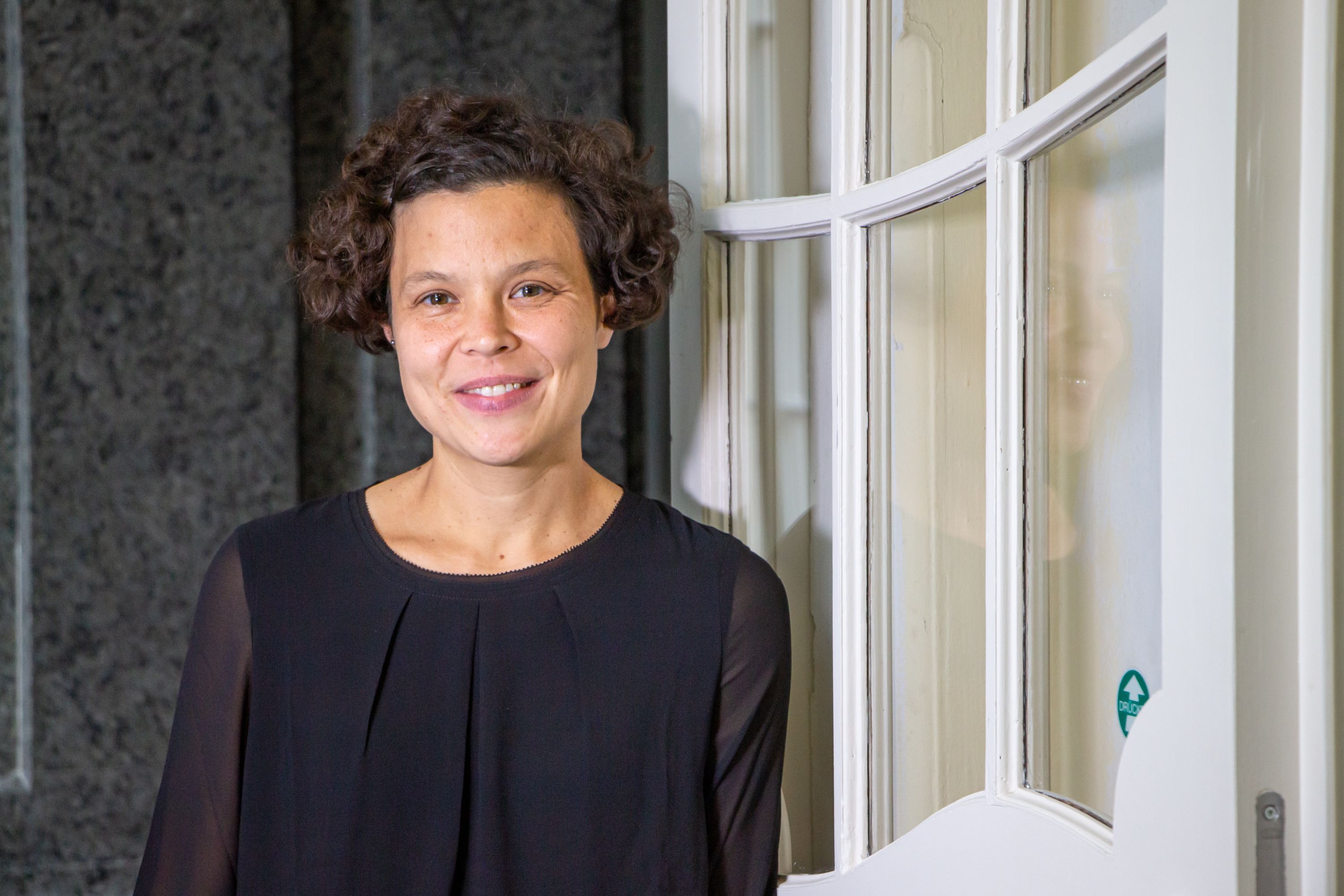BGHS.NEWS
Practitioners in Talk – Part 21
:: Non-academic careers::
Practitioners in Talk – Part 21
Many ways lead out of the BGHS. But where do postdoctoral paths lead? We talk to historians and sociologists who have taken up their career outside the university. Tina Denninger spoke to us about her work as commissioner for people with disabilities of the state capital Potsdam.

Picure 1: Tina Denninger’s Picture: state capital Potsdam / R. Schnabel
Ms Denninger, you did your PhD in sociology in 2015. If you remember starting your career: How did you find your way into the job?
Tina Denninger: When I finished my PhD, I was working as a research assistant at the Institute for Sociology in Munich. On my position in Munich, I could have completed my habilitation. At the time, however, I was commuting from Berlin to Munich and decided to look for a job outside of the university in Berlin. I also found the job quickly: as a research assistant at the “Institute for People, Ethics and Science” (IMEW). It is a very small institute: besides my boss, I was the only member of the institute’s scientific staff. We have carried out third-party funded projects for the participation and participation in decision-making of people with disabilities, and these projects were funded by “Aktion Mensch”, for example.
How did you come to your current position?
Tina Denninger: My work at IMEW gave me a good insight: What does the administration do to promote the participation of people with disabilities? And what does the administration have to do to comply with legal requirements? To give an example: After the ratification of the UN Disability Rights Convention, many municipalities developed action plans to improve the participation of people with disabilities in the municipality – for example to provide information in easy language or to lower curbs. We accompanied many municipalities in developing these action plans: We evaluated such action plans at IMEW. But we have also developed action plans, especially for districts in Berlin. Mostly it is the commissioners for people with disabilities who initiate these action plans. And I got to know my predecessor here in Potsdam in a project on participation in decision-making for people with disabilities in facilities for the disabled and in municipalities. This is how I later became aware that the position as a commissioner was advertised here.

Picture 2: Tina Denninger (first from left) at work
You work for the state capital Potsdam. Where do you work now exactly?
Tina Denninger: The position of a commissioner is a special one. On the one hand, I am member of the administrative staff. On the other hand, it is a political office: I have been elected by the city council as a commissioner for people with disabilities for five years. As a commissioner, I have a staff position with the mayor and – in a position outside of departments – I have the task of bringing the topic of “people with disabilities” into the work areas of all departments: in education, in sport, in construction, as well as in personnel matters.
What are your most important tasks in this job?
Tina Denninger: Firstly, my job is to change structures in the administration: with the aim of making the administration work better for citizens with disabilities. So, for example, by building barrier-free. Second, it is my job to network with politics and administration, with associations, facilities for disabled people, and cultural institutions. Thirdly, I answer queries from citizens or forward these queries. Fourth, tasks are brought to me by politics; for example, to design a barrier-free city guide. And finally, I also initiate projects myself: For example, we are currently applying to host the Special Olympics Germany. This is the Olympics for people with mental disabilities.
What tips do you have for colleagues from sociology or history who are interested in a career in the occupational field you are in?
Tina Denninger: In general: to do what you feel like doing. For a long time I was guided by the feeling: I can only do university and I only know about my PhD topic. So, I’ve always dealt with “age” and thought: I can only apply for “age positions”. In the end, I only applied outside of my PhD topic and made the experience that it didn’t work in spite of, but rather because of my scientific background. So to speak: The woman can work scientifically; she is a sociologist; she managed to do her PhD with two children – then she will also manage to familiarize herself with the subject of “people with disabilities”.
Ms Denninger, thank you for the conversation!
The interview was conducted by Ulf Ortmann.
You can find the complete interview (in German) here:
Further information on the non-university careers project is available here . The previous interviews in the series are available here.
